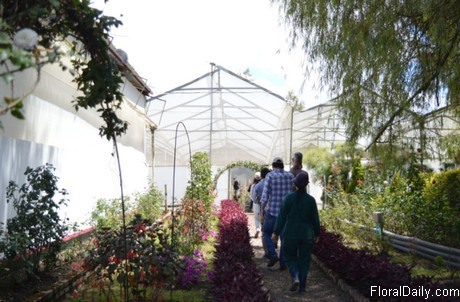
Entering the greenhouse where new garden roses are being trialed.
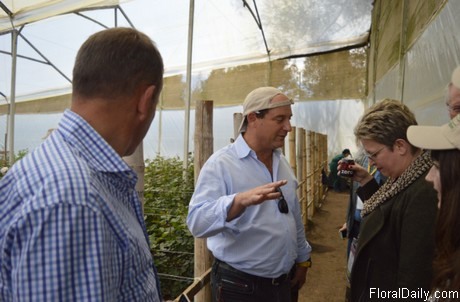
Jose Azout explains that new varieties are being trialed in this part of the greenhouse. "Here, 100 different varieties from different breeders from all over the word are being trialed. This is the first stage. If they pass our requirements in this stage, we go to the next stage, where we will increase the production to 100 plants. If they also perform well in this stage, we will go to the third stage where we go to 1000 plants," explains Azout.
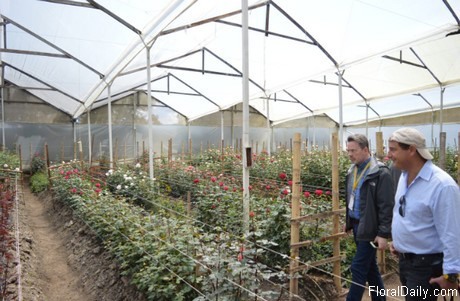
According to Azout, less then 10 percent of the plants that are tested are eventually grown commercially.
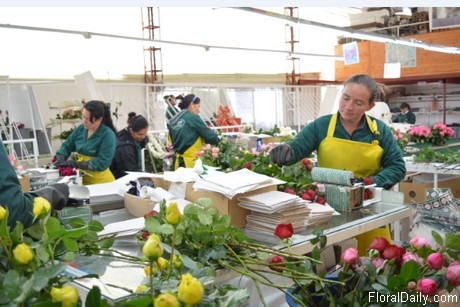
After harvesting, the roses are packed in the packaging area. According to Azout, garden roses need to be transported very quickly, faster than greenhouse roses, to the packaging area. In order to do this as quickly as possible, they use a wire cable system that connects the farm and the post harvest area. In the photo: the bunches are being prepared. "The amount of roses packed in a bunch depends on the customers preferences, although most garden rose bunches have a dozen stems."
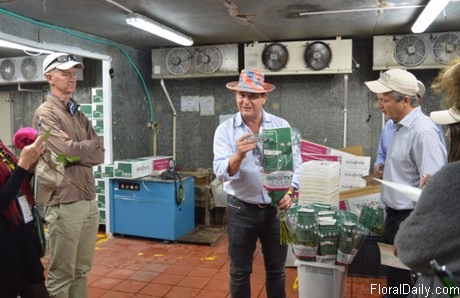
After packing the flowers, they are brought to the cooling area, where they have to be hydrated for a least four hours before they can be transported. "After four hours the head is reached and they are fully hydrated," he says. In the photo he shows the two wraps they use, one hard wrap to protect the rose petals and an outer plastic sleeve which is used to protect the foliage.

Azout explains that they put ethylene blockers inside the box. "Many perfumed and garden roses are very sensitive to ethylene. Water will activate the ethylene blockers. Then, they will release a gas which will block the ethylene absorption of the roses." Furthermore, each bunch is tagged with the name of the bunch maker. "This has two advantages, one for us as no bunch will get lost and one for the receiver as they can see that every bunch is created by a person. Funny enough, some customers think the name on the tag is the name of the variety," he laughs.
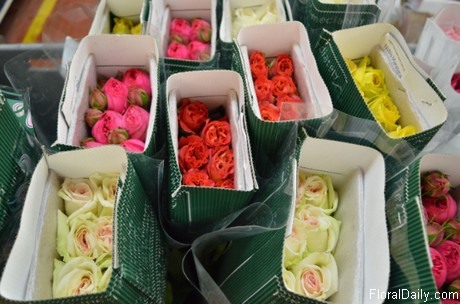
The vase life of the garden roses is 7-10 days, after shipping. According to Azout, Garden Roses are unusual Valentine's Day gifts as the Garden Roses season is the wedding season which, in the US and Northern Europe, runs from April 1st to October 31st.

Alexandra Farms also showcased their garden roses at the Proflora. Two of their garden rose varieties were awarded at the show: they won the first prize for a variety called Mayra, photo on the left and the second prize for a variety called Ashley, photo on the right.

Alexandra Farms
Jose Azout
Email: joserazout@aol.com
www.alexandrafarms.com
